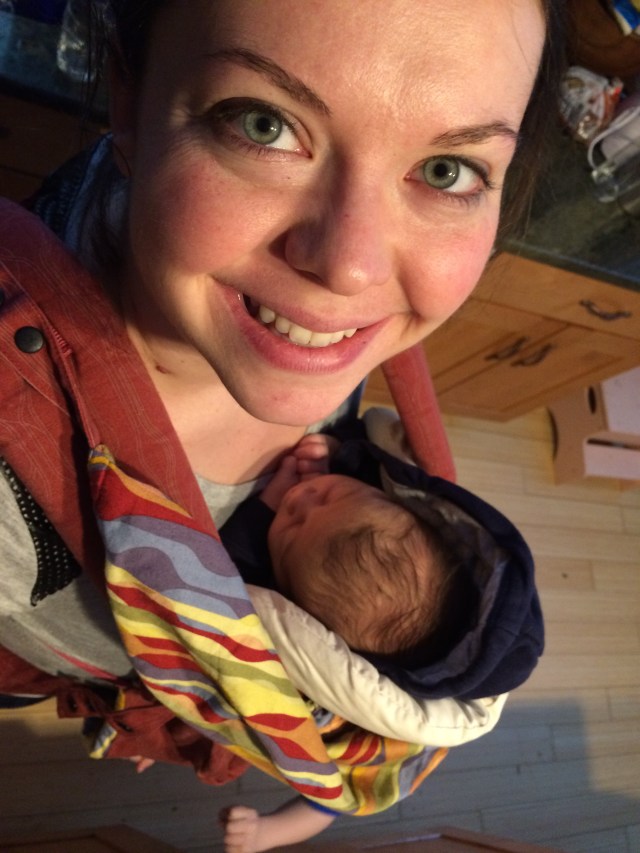In May 2014, I was overjoyed to learn that my second baby was on the way, but when I calculated my due date, my heart sank: January 27 was right in the middle of flu season.
Like any good mother, I did what I needed to make sure my home was prepared for a new baby during cold and flu season. I used Clorox wipes on doorknobs and faucets like nobody’s business. I limited my toddler’s time at playdates as I neared my due date, and I made sure we were all up-to-date on our flu shots. I also started asking close relatives to get their flu shot and their pertussis vaccine.
Once my son was born, I declined all visitors at the hospital and I refused to let my newborn be “passed around” at home. I kept him in an Ergo baby carrier for the majority of the day; close to Mama where kind—but too-close-for-comfort—strangers could not greet my little man. I definitely received my share of side-eyes, but the mama bear in me didn’t care. But what I didn’t realize that what I was doing was called “cocooning.” And turns out, cocooning is trending for good reason—because it’s helping to save the lives of newborns.
While miffed family members called me “extreme” and a “germaphobe”, the American Academy of Pediatricians’ was on my side. Their official policy on cocooning is this:
“One of the best ways to protect very young children—who have not yet received the full range of vaccines for deadly diseases—is to ensure that all family members and caregivers who are in close contact with the children are up-to-date on their own immunizations.” Adding, “Creating a circle of protection around the baby is called ‘cocooning.’”
What Exactly Is Cocooning?
Cocooning is the practice of secluding yourself and protecting your newborn from illnesses and diseases. It’s not uncommon for new parents to cocoon their newborn from relatives (even aunts and uncles and grandparents) and friends until adults receive vaccine updates (like the flu shot or Tdap) and/or until baby receives his first set of immunizations.
3 Reasons Cocooning Is Important:
-
Newborns are too young to receive all the necessary immunizations to be fully protected from diseases like whooping cough and the flu.
-
According to the Immunization Action Coalition, it’s not strangers who most often get babies sick; it is unvaccinated family members who pose the greatest risks to newborns since they are in much closer contact with a baby (than a stranger).
-
Whooping cough and influenza are not extinct. Both outbreaks occur each year.
How to Cocoon with Your Newborn
Cocooning is about protecting your baby; in this case, you are cocooning or shielding your baby by surrounding your little one with adults who are fully immunized against infectious diseases. You can cocoon your baby by:
-
Receiving immunization against whooping cough while pregnant; this is in line with ACOG recommendations for all pregnant women
-
Requesting that all family members in close contact with the baby receive their flu shot
-
Requesting that all family members in close contact with the baby receive their Tdap
-
Immunizing your baby as soon as possible (per your pediatrician’s guidelines)
Of course, if you have questions, make sure to reach out to your baby’s doctor!











